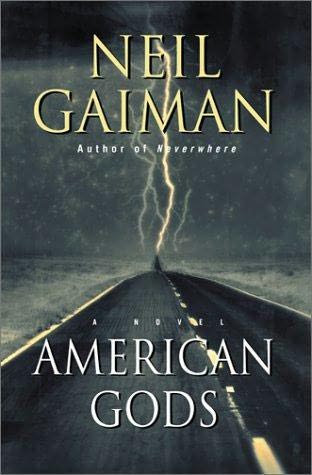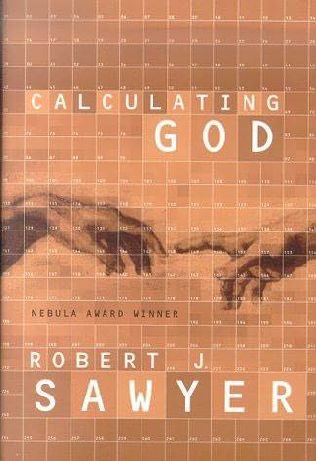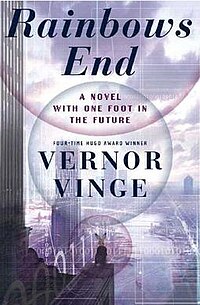I finished
Calculating God by Robert J. Sawyer. Here is my review.
Calculating God by Robert J. Sawyer
Robert J. Sawyer attempts to tackle the heavy topic of the creation of the universe, in a book that attempts to be didactic and entertaining at the same time. While his motivations are admirable, as he does provide a fairly balanced criticism of evolution in parts, I felt a little cheated by the end. Essentially, Sawyer's philosophy putters out and leans on cheap and convenient plot events to help push his argument along. Sure, this is fiction, but when a book presents itself as an honest exploration of the nature of the universe and its history, especially in the first half or so of the narrative, you expect it to treat you as an intelligent reader. What Sawyer does in the third act of this novel shatters the good faith he slowly established earlier on.
Calculating God begins with an alien spacecraft landing outside of the Royal Ontario Museum, and an alien life form seeking a paleontologist. The alien being is part of one of several races who are interested in seeking God, as they have uncovered that three planets, Earth included, have experienced a series of mass extinctions that have all occurred around the same time. The timing of these events seems far too mathematically improbable to just be a coincidence, so Occam's razor quickly suggests that some form of creative intelligence is behind running life, the universe, and everything.
Sawyer does a decent job of poking honest holes into evolutionary theory, and tries to point people to a wider understanding of the universe; one which had its initial parameters set up by a creator. Sawyer uses the metaphor of God being the programmer, and the laws of physics and fundamental constants being the source code. That is all well and good, and I was happy to see Sawyer not explore God as a benevolent being who seems to care about every little thing that happens in the universe, but as an imperfect intelligence that had to make due with the existing source code. Where Sawyer's credibility falls flat is when he turns the novel into a love letter addressed to intelligent design.
A good chunk of the book is devoted to philosophical discussion between Tom Jericho, the paleontologist who is also dying of cancer and is struggling to reconcile his understanding of an unfeeling universe, and Hollus, the alien life form who believes there's a man behind the curtain. The initial conversations are fascinating, engaging, and even educational. The first part of the book reads like hard science fiction, with enough popular culture references to keep it from becoming entirely stale. As the narrative is pushed forward, however, and Sawyer starts to focus on a massive event that could tear apart the universe as we know it, we are forced to suspend our disbelief to an unfair degree. The philosophical debates from the start of the novel are almost completely abandoned, as Sawyer remembers that he still has a story to write, and he uses this story as a vehicle to push for an uncompromising conclusion. There is also an irrelevant side story about two American fundamentalists that blow up an abortion clinic and try to destroy some fossils inside the Royal Ontario Museum, which doesn't seem to serve any purpose outside of having some cheap laughs at the expense of extreme creationists.
In the end, I admire what Sawyer set out to do with this book. However, I wish he would have made up his mind as to whether he wanted this to be an honest exploration of evolutionary theory and the origins of the universe, or a cheap allegory for the existence of intelligent design. While Jericho's intellectual walls may have come tumbling down, mine were still firmly planted by the end of the book. Regardless, Sawyer's ability to get people to talk about these topics, and to keep me interested by his constant popular culture references, especially as they relate to Canadian society, were enough to push me through until the end. There are enough interesting ideas in here for the book to be worth a read, despite a cop-out conclusion.
3/5.
Next up:
Neuromancer by William Gibson.


















)



